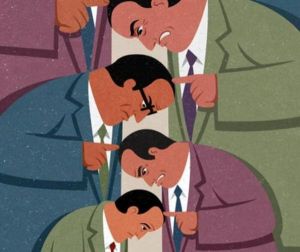Main Page - new design
Welcome to BurnZero.
An exploration to find new ways of thinking.
Preface
All references made in this wiki come from scientific journals based upon access to data that would not have been possible without the incredible work performed by Aaron Schwartz and Alexandra Elbakyan in the creation of Sci-hub, a decentralised shadow library of copyrighted scientific research papers. BurnZero is maintained by an anonymous group of moderators one of which is Voytek Bereza, a GPhC licensed prescribing pharmacist specialising in neuropsychopharmacology based in Sydney. If you find any factual errors we offer a bounty, just post the error on our subreddit to claim. Please read the following with a critical yet, open mind.
Part 1: Introduction
We are running out of time to hide from the ecological crisis. Whilst we have been working on solutions to deforestation, biodiversity loss and climate change, these are only potential remedies to symptoms, not the root cause. Common logical fallacies mean many of us are unaware, many that know have been pacified to how imminent the threat is. Representatives have been raised to power to address the issue, only for many of them to be captured by bad science and big finance.
In desperation we form activist groups, XR, Greenpeace, Sea Shepherd... all fight for the same cause however, ancient tribalism and hidden egotism mean we are divided and conquered, losing economies of scale and widespread public support. Solidarity is desperately needed but this requires trust in a cohesive vision. This evolving wiki, BurnZero, is dedicated to the pursuit of that goal.
Part 2: Popular Delusions
Our personal paradigm often positions itself as the only paradigm. However, popular delusions, thought paradoxes and cognitive biases distort our view of a commonly shared reality. Before we can effectively address this crisis, first we must look at ourselves and dissolve our perceptual framework and enable new modes of thought. Due to the limited timeline involved and the degrading neuroplasticity[1] of those in power, traditional learning is no longer suited for the task. We need to induce pivotal mental states to change our minds before an ecological tipping point will.
Part 3: Learning from our mistakes
Our societal level social experiments have failed to provide us with long-term, sustainable solutions. Communism in the 1900's showed us our selfish genes and neoliberalism has now brought us to the brink of environmental collapse. Instead of framing these failed systems as two ends of a spectrum and then bickering which is best, we need to accept they have both failed.
First we need to define what is good, its seems like a funny question however it is important place to start as what is good for you might not be good for us. This can be resolved by understanding the relativity of ethics, to do good, in a globalised society would be to do good for all of us.
Part 4: The Bad Machine
Corporate irresponsibility has been known since their inception. When the corporate structure was first invented, the powers that be codified their founding agreements so they could only form for short periods of time, after which they would have to be dissolved[2]. The reason for this limitation on their operational life was that the authority feared that as the corporate structure limits liability a Pandora's box might be unleashed in perpetuity with noone to blame. However as corporates became increasingly powerful they effectively lobbied for the removal of dissolution controls and became profit generating automatons. Today the vast majority of global externalities originate from just 90 corporate entities around the world[3].
But why does this happen? Corporate objectives are codified in their founding incorporation statements (ICs) which exhibits as behaviour in its leadership via "shareholder primacy". This profit seeking behaviour then propagates through the organisation to staff behaviour via "fiduciary duty" (See Figure 1) ensuring all parts of the system work in the pursuit of financial gain of shareholders. This binding principle gives corporates the traits of an inhuman, unfeeling, machine. Furthermore, this structure works as a funnel selectively promoting the worst human traits.
Research has found people with narcissistic traits tend to get promoted 39% faster in their progression to CEO and that there are at least three times as many psychopaths in executive or CEO roles than in the overall population[4]. Psychopaths constitute around 1% of the adult population and 20% of (North American) prison populations, they are reported to be responsible for about 50 % of all serious crimes[5] potentially due to their lack of empathy. However, unlike psychopaths, a corporation is merely a machine and founding heuristics can be readily modified.
Part 5: Tenet of Incorporation
ICs are legal documents which detail specific rules, by which a corporation is to operate. If a corporation is analogous to a machine, ICs are the guiding principles of the cogs inside of the system. More recently, subsets of ICs have developed called Standard Operating Procedures (SOPs) which are used to gain greater control over the moving parts of the system, i.e. its employees.
The primary tenet of any IC is the survival of the business. This leads to two common types of corporations:
- Not For Profit - those that primarily use revenues for wages such as a charity like WWF.
- For Profit - those that use profit for wages and shareholder primacy, such as Mcdonalds.
What's common to both is that revenue generated is primarily associated with maintaining the survival of the business. So although Mcdonalds is obviously worse than an NFP as their unaccounted negative externalities of profit, NFPs are not the best alternative as they are massively inefficient due to pursuit of revenue for wages.
So, the question is, if the current types of corporation are inefficient and still create unaccounted negative externalities would it be possible to create another type of corporation which mitigates this? There have been many attempts, from different types of cooperatives to modern DAOs which try to cut out the weakest parts, humans, completely. The most successful organisation type of have been the B Corporations. B Corporations are ethically certified corporations which abide by specific ICs and SOPs to ensure they are sustainable. Patagonia, the clothing brand for example, emerged using this structure and successfully creates over 60% of its products from recycled materials. However, although the ethical stance of a company like Patagonia is relatively better than a corporation like Nike, both organisation make new clothes which requires a heavy petrochemical enabled supply chain. So can we do better?
Part 6: The Good Machine
When the concept of robotics was first invented, Isaac Asimov imagined the creation of autonomous intelligence in the form of androids however a conundrum arose. If a machine is developed which has autonomy and was sufficiently enabled, how can we ensure that it primarily does no harm to humans? Without any protective laws a machine with the purpose of purely making money will destroy everything in its path to achieve its goal. As such, Asimov developed the Four[6] laws of robotics, distinct ethical rules to protect humans from the ruthlessness of machines:
- Zeroth Law - A robot may not harm humanity, or, by inaction, allow humanity to come to harm.
- First Law - A robot may not injure a human being or, through inaction, allow a human being to come to harm
- Second Law - A robot must obey the orders given it by human beings except where such orders would conflict with the First Law.
- Third Law - A robot must protect its own existence as long as such protection does not conflict with the First or Second Law.
If a corporation is a type of machine, these laws could also serve as the basis of a series of tenets which would enable the development of an incorporation statement of a new type of business, a good machine.
Part 7: Purpose *Under Construction*
Whilst the "transparent" incorporation statement mainly codifies exclusions, i.e what the business cannot do, it doesn't say much in regards to what it can do. In fact, the additional governance requirements, most notably the transparent tenet, actually creates a key disadvantage for the business. The more proprietary market information a business has the greater the businesses advantage is in the marketplace, knowledge is power. By employing a pure transparency tenet, all competitive advantage is lost and in theory the business would not be able to exist.
With the creation of the internet came ecommerce and business was increasing conducted in a hyper liquid market. This meant once an advantage was established it quickly dissipates due to how fast information moves, a very efficient arms race ensues, profits erode until only the lowest common denominator is left. Oddly, a recent trend has developed that once this level is reached, the only thing that can differentiate a new business is offering better ethics. Where a new entrant to a market cannot make it faster, cheaper or more efficient the business no other option but to differentiate itself by other means.
One recent example of this new trend is the online ticketed event space. Eventbrite came to the market with an easy to use system which everyone started using, once the UI was established and refined the cost of development plummeted and a new entrant emerged, Humanitix. The new entrant offers nearly exactly the same website and service, however differentiated on one key attribute, virtue. The company registered as a charity and donates its profits to helping disadvantaged kids around the world. The company is doubling in size every 6 months and now has offices in Sydney, Auckland and Denver. But is this the future of business on a dying planet? If an ethical arms race ensues is this the best we can do?
One major criticism of any Not For Profits (NFP) is that due to the lack of shareholder primacy, they are often bloated with human resources and thus inefficient. This often relates to a common critique of communism vs capitalism, that the former lacks the profit incentive and nothing gets done conversely with the latter the opposite occurs the desire of profit is so great it causes internal costs to be externalised.Start editing
The BurnZero is made by people like you! Be Bold and get started here!
Check out our mail list
Check out new education site
References
- ↑ Do heads of government age more quickly? BMJ. Published 14 December 2015, accessed on 12th July 2022 via: https://doi.org/10.1136/bmj.h6424
- ↑ The Modernization of Corporation Law, 1920-1940, 11 J. Bus. L. 573 (2009). U. OF PENNSYLVANIA JOURNAL OF BUSINESS LAW, Vol. 11:3. Accessed on 22 July 2022 via: https://scholarship.law.upenn.edu/jbl/vol11/iss3/2
- ↑ Just 90 companies are to blame for most climate change. First published 25th August 2016, accessed on 17th August 2022 via: https://www.science.org/content/article/just-90-companies-are-blame-most-climate-change-carbon-accountant-says
- ↑ The perks of narcissism: Behaving like a star speeds up career advancement to the CEO position. The Leadership Quarterly: Published June 2021, accessed 13th July 2022 via https://doi.org/10.1016/j.leaqua.2020.101489
- ↑ The core problem of crime in society: Psychopath offenders. Socioloski pregled. Radulovic, Danka. (2012). 46. 583-600. DOI: 10.5937/socpreg1204583R.
- ↑ Isaac Asimov’s Laws of Robotics Are Wrong - Peter W. Singer published: May 18, 2009, accessed on 8th July 2022 via: https://www.brookings.edu/opinions/isaac-asimovs-laws-of-robotics-are-wrong/












